The Porsche 956: The Car That Revolutionised Le Mans Racing
The Porsche 956/962 revolutionized Le Mans racing with its reliability and speed, winning seven times and kick-starting the Group C era.
Getty Images
Car to remember
Porsche 956/962
The Le Mans 24 Hours has become a flat-out sprint – a process that started with the arrival of arguably the greatest Le Mans racer ever, the Porsche 956.Here was a car that could be driven full pelt — fuel allocation allowing — day and night. And that was night and day compared with what had come before.
“Driving the 956 for the first time was a shock, but in a positive way,” says Hans Stuck, a two-time Le Mans winner and world champion with the car’s long-wheelbase variant, the 962. “Every time you got in a sports car before the 956, you expected something to break, fail or overheat. But you didn’t have to worry about that now. The car did what it was designed to. You just had to drive it.”
Porsche and the car’s architect, Norbert Singer, got the basics spot on, which goes a long way to explaining the car’s longevity. The 956/962 was still a Le Mans front-runner six seasons after its debut and remained in the mix for three more years after that. Brun Motorsport came within 15 minutes of second place in 1990.
And then there was the return of the car to the winner’s circle as a ‘road car’. The opportunistic Dauer Porsche 962LM GT racer claimed a seventh Le Mans victory for the design in 1994. That wasn’t even the end of the story: there were still variants of the 956/962 on the grid as the decade closed.
The car’s record speaks for itself, and not just at Le Mans. Aside from those seven wins, it triumphed at Daytona six times and at the Sebring 12 Hours on four occasions. Its tally of World Championship victories stands at 29, while in America it collected a massive 55 wins in IMSA GTP.
The true greatness of the 956/962 is encapsulated within those statistics, and privateers played a central role in its history. Porsche decided to build a run of customer cars for 1983, kept on making them into the 1990s and was more than happy for a well-run car to show the factory the way.
That was crucial in helping to pull sports car racing in general out of the doldrums. The 956/962 kick-started Group C. Would Mazda, Jaguar, Nissan, Toyota and Mercedes have been drawn into the category had there been no Porsche? Probably not.
Porsche’s participation in Le Mans – and that flotilla of privateers – put the race back on the map and made it a destination for other manufacturers.
Stars of the decade
Derek Bell
The popular Brit won at Le Mans five times, four in the ’80s and three of them when partnering Jacky Ickx. Bell still managed to finish on the podium in 1995 with a McLaren F1, when well into his 50s.
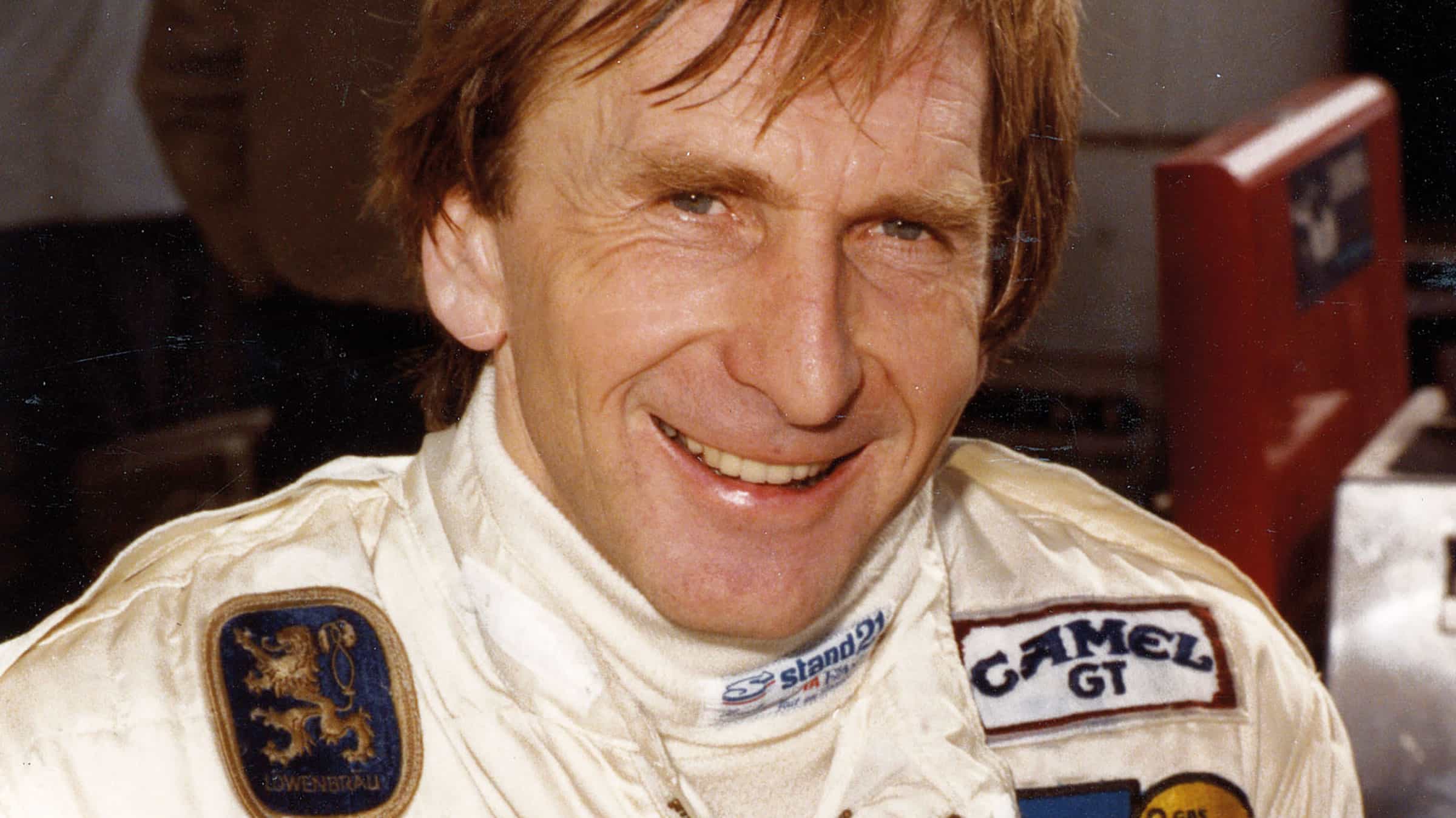
Al Holbert
A huge part of Porsche’s endeavours through the ’70s and ’80s, winning Le Mans three times in the Group C era. His run might have continued were it not for his tragic death in a plane accident in 1988.

Klaus Ludwig
The German touring car ace hated every second at Le Mans, but still won in Joest’s Porsche 956B in 1984 and ’85, bringing his total to three victories. Quite a feat for a driver that disliked it so.
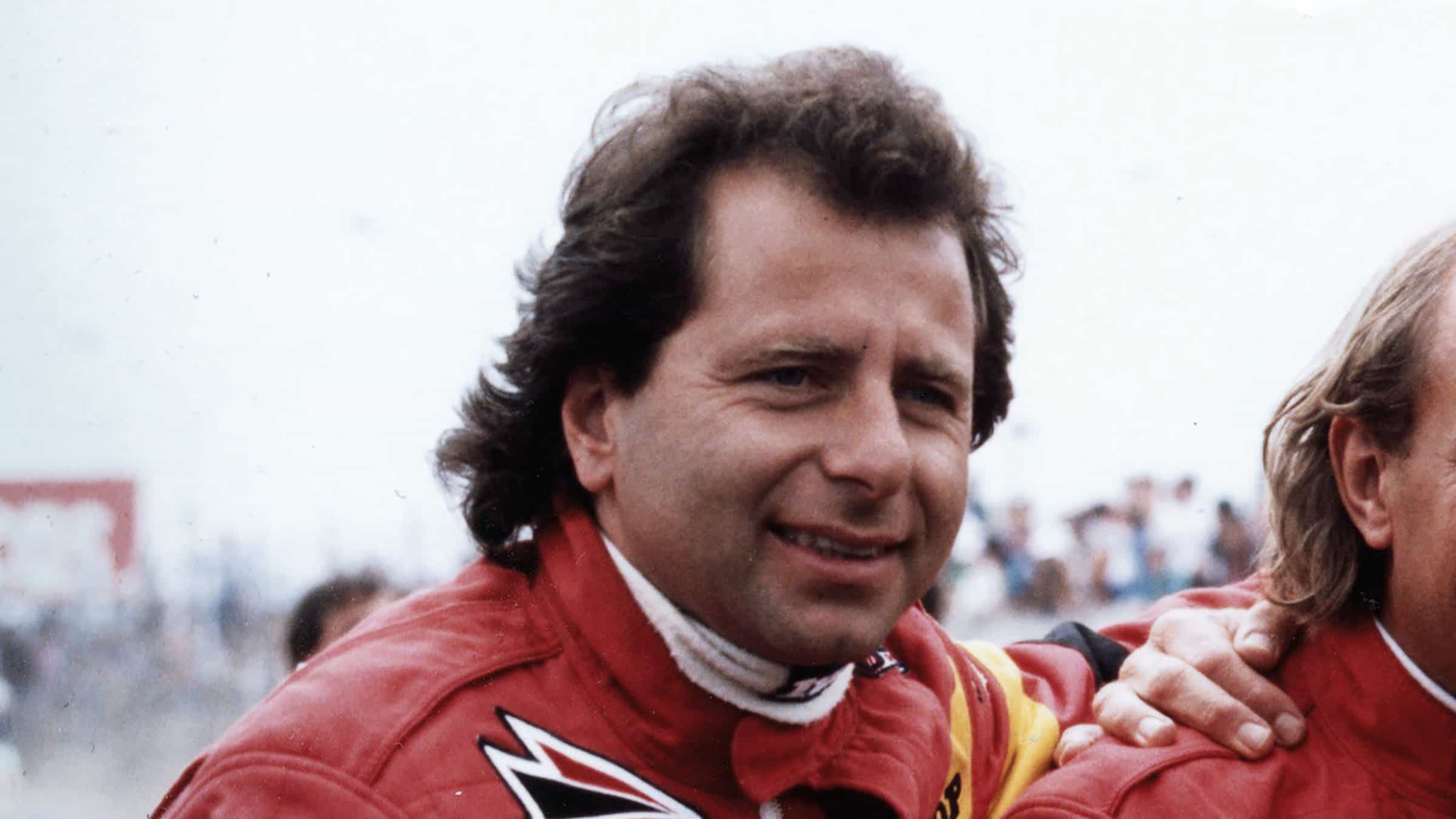
Jochen Mass
He won more races than any other driver during the Grp C era, often alongside Ickx in a works Porsche. Things only came together for him once at Le Mans, with Sauber-Mercedes in 1989.
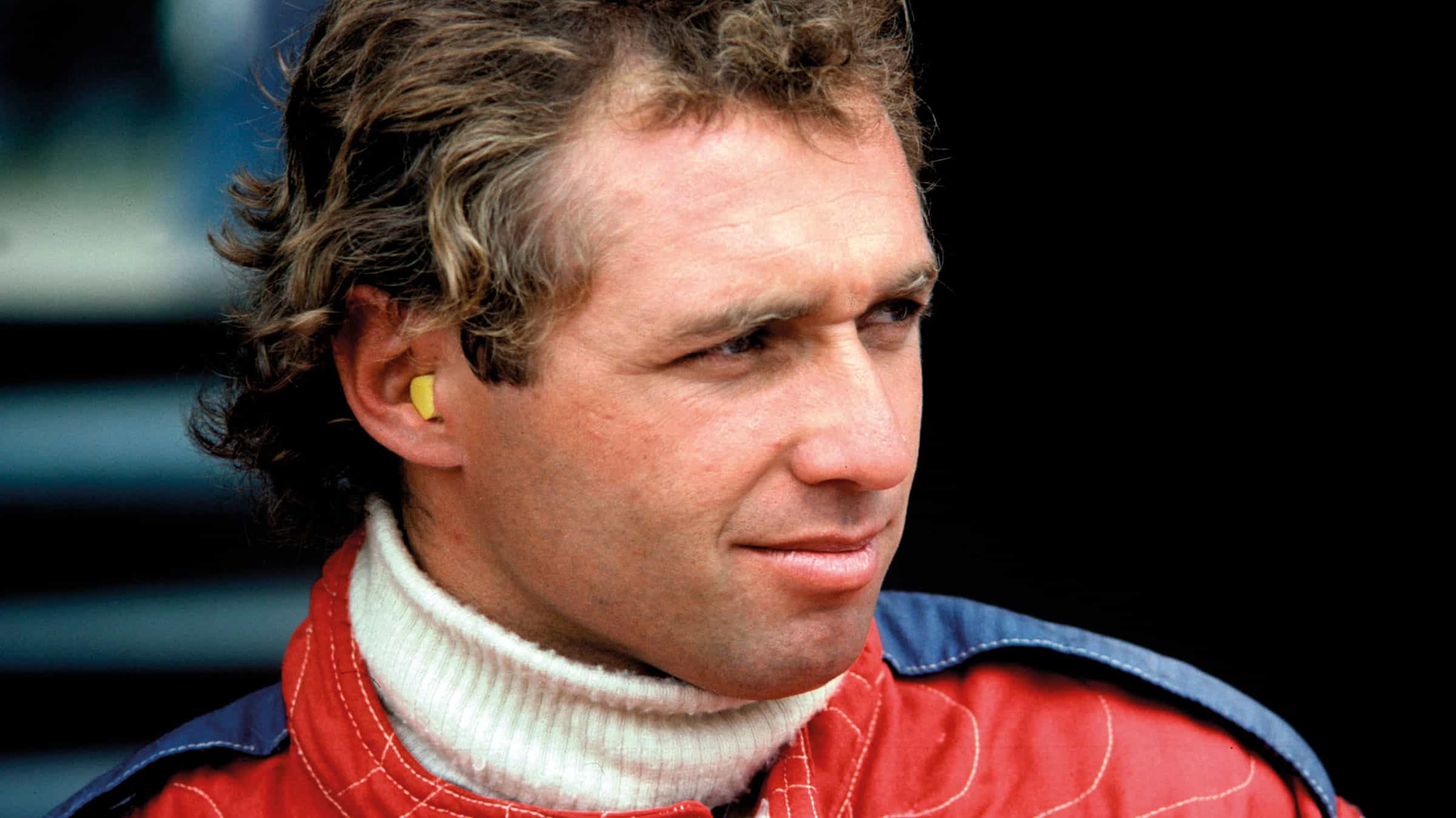
The winners
1980
Rondeau M379
Jean Rondeau/Jean-Pierre Jaussaud
4308km
Pole goes to the fastest crew, rather than swiftest individual. Rondeau becomes first winning driver-constructor
1981
Porsche 936
Jacky Ickx/Derek Bell
4825km
1982
Porsche 956
Jacky Ickx/Derek Bell
4899km
New regulations impose 100-litre fuel tanks and limit cars to 24 pitstops. Porsches win every class
1983
Porsche 956
Vern Schuppan/Hurley Haywood/Al Holbert
5048km
Porsche’s 956s finish 1st-8th
1984
Porsche 956B
Henri Pescarolo/Klaus Ludwig
4900km
Porsche factory boycotts race due to row about fuel regulations
1985
Porsche 956B
Klaus Ludwig/Paolo Barilla/‘John Winter’
5089km
1986
Porsche 962C
Derek Bell/Hans Joachim Stuck/Al Holbert
4973km
1987
Porsche 962C
Derek Bell/Hans Joachim Stuck/Al Holbert
4792km
Increasing speeds lead to introduction of the Dunlop chicane
1988
Jaguar XJR-9LM
Jan Lammers/Johnny Dumfries/Andy Wallace,
5333km
First Jaguar win since 1957. Roger Dorchy’s WM P87 hits 405kph (251mph) on Mulsanne
1989
Sauber C9
Jochen Mass/Manuel Reuter/Stanley Dickens,
5262km
Political spat leads to the race’s exclusion from World Sports Car Championship for the first time since the inception of the series back in 1953
Gallery
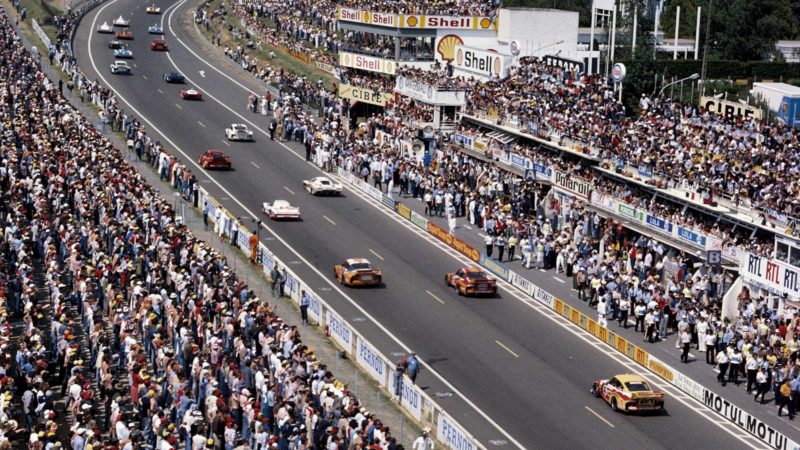
The start of the 1981 race. During this time the grid was populated by ageing prototypes and GT cars, and Porsche’s 936 scored its third win. Little did the spectators know the following year would bring with it the birth of a new era. Group C would go on to become a golden age
Getty Images
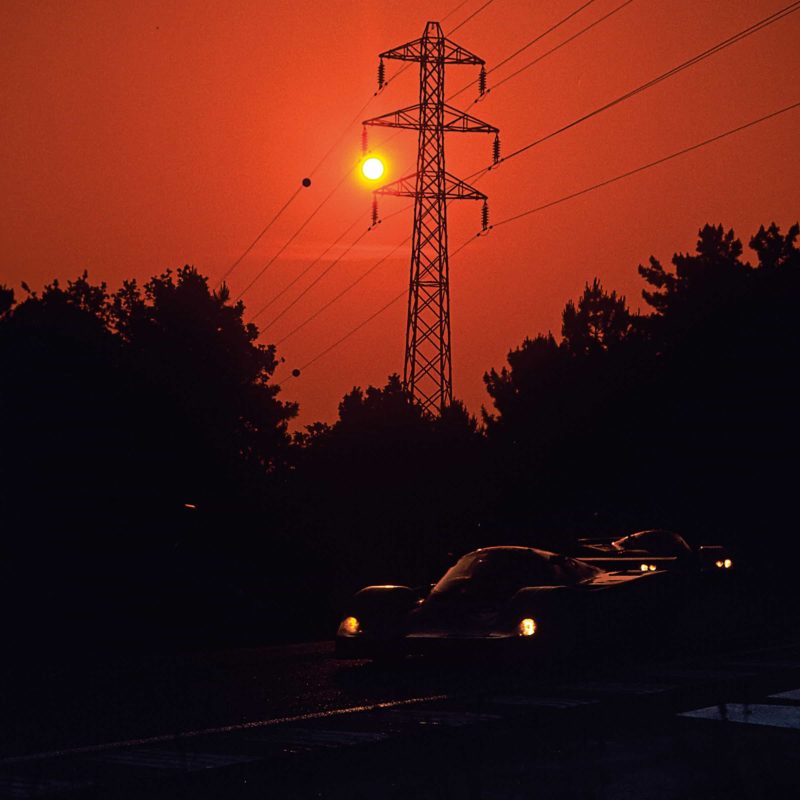
Mario Andretti drives his Kremer Porsche 956 into the sunset in 1983. He shared the car with his son Michael and Frenchman Philippe Alliot, the trio finishing third behind a pair of works 956s
Getty Images
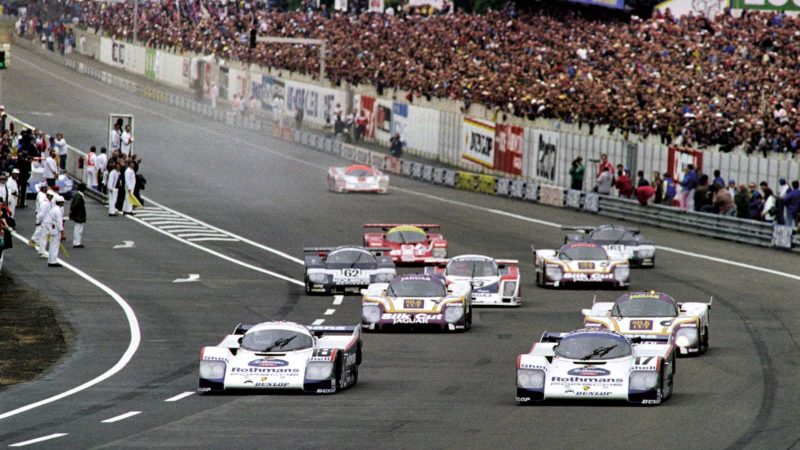
By 1987, Porsche was well established at the head of Group C with first the 956 and then the 962, but growing opposition from Jaguar and Mercedes kept things interesting
Getty Images
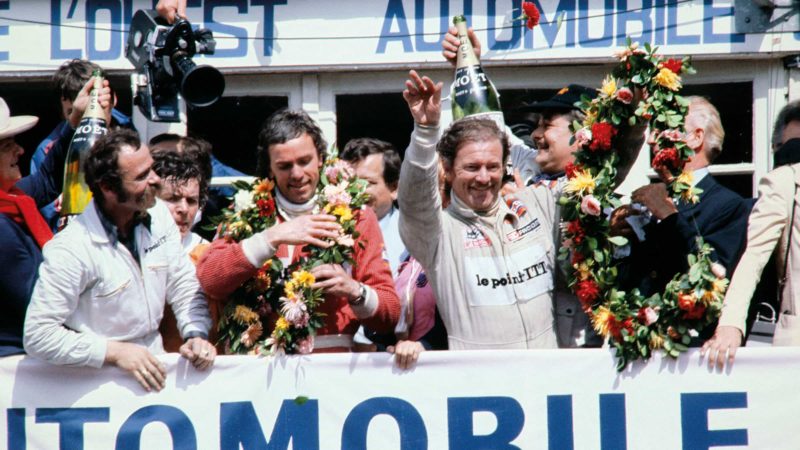
Le Mans local Jean Rondeau finally achieved his dream of winning the race in a car bearing his own name in 1980 alongside Jean-Pierre Jaussaud. It still stands as a unique achievement which is unlikely to ever be matched. Just five years later he would be killed when trying to run a level crossing
Getty Images
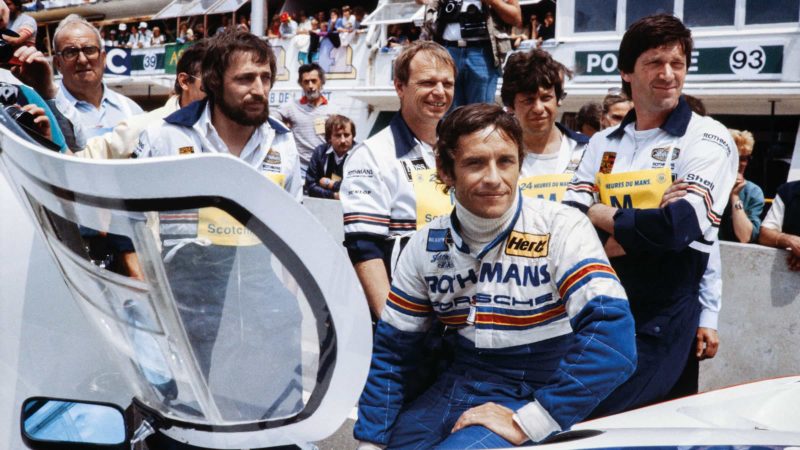
Jacky Ickx poses before the start of the 1983 race. The Belgian would kick-start the ’80s with back-to-back wins in 1981/82. He would make his final Le Mans appearance as a driver in 1985
Getty Images
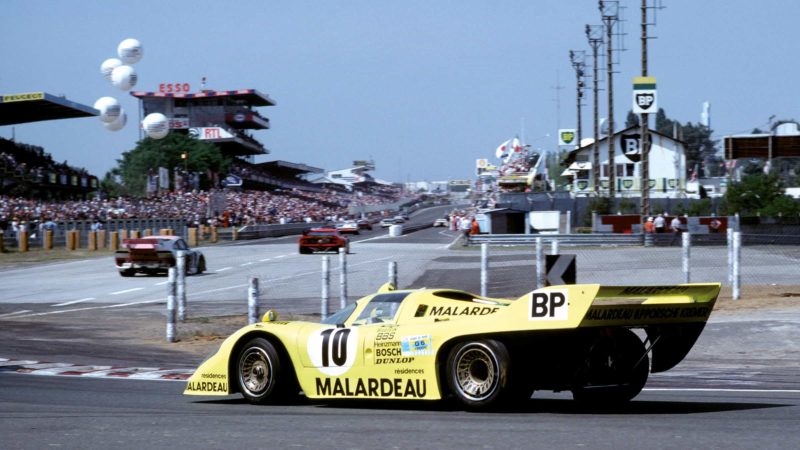
Kremer Racing ran this unique 917K/81 variant in 1981 for Bob Wollek, Guy Chasseuil and Xavier Lapeyre, but the car showed its age and retired with engine failure in the seventh hour
Getty Images
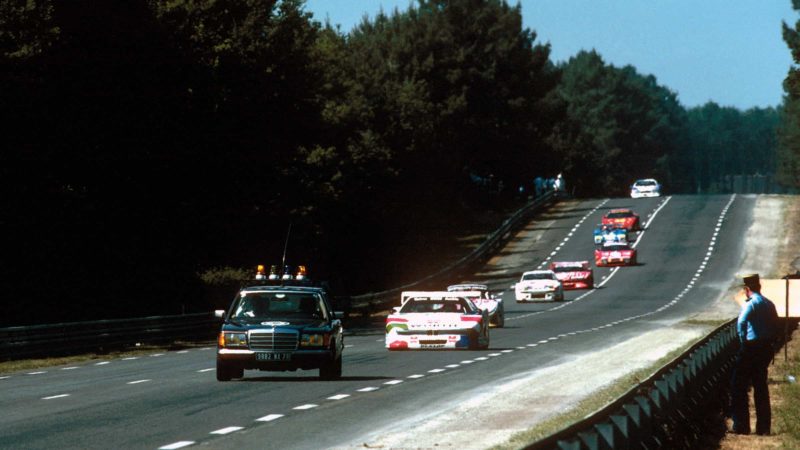
The course car leading the field around ahead of the start of the 1981 race
Getty Images
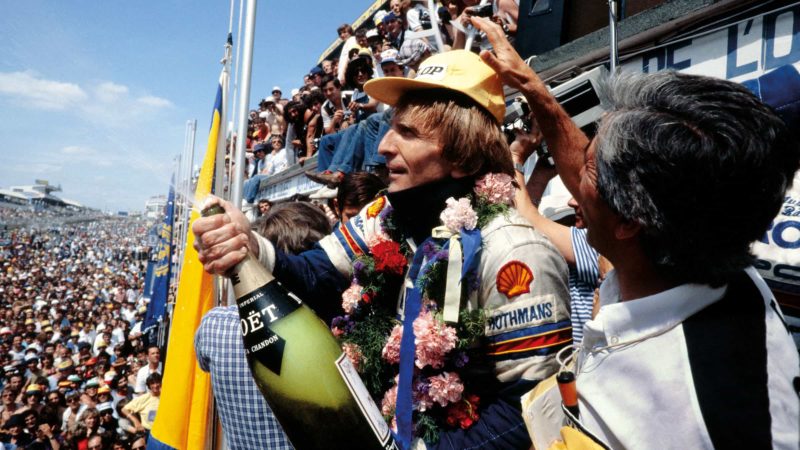
Derek Bell enjoyed his best years as part of Porsche’s works Group C effort, scoring three Le Mans wins (here is 1982). His hat-trick in Rothmans cars brought his tally to five wins
Getty Images
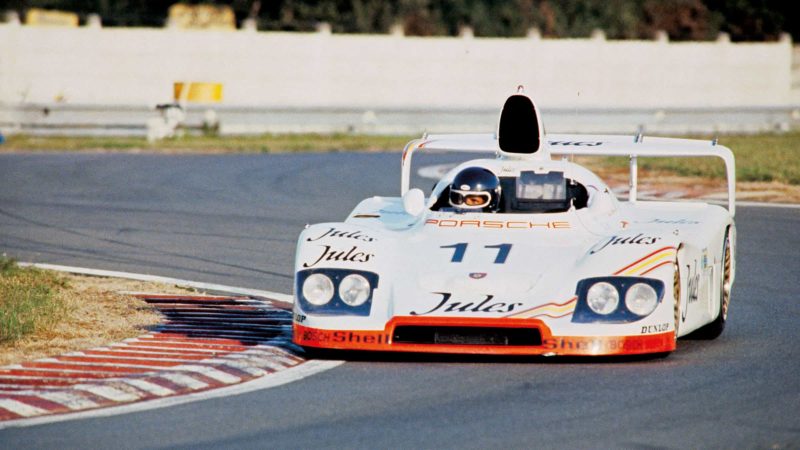
Jacky Ickx in the Porsche 936 of 1981. This car was an evolution of the same design that first won Le Mans back in 1976, such was the staying power of the open-topped model
Getty Images
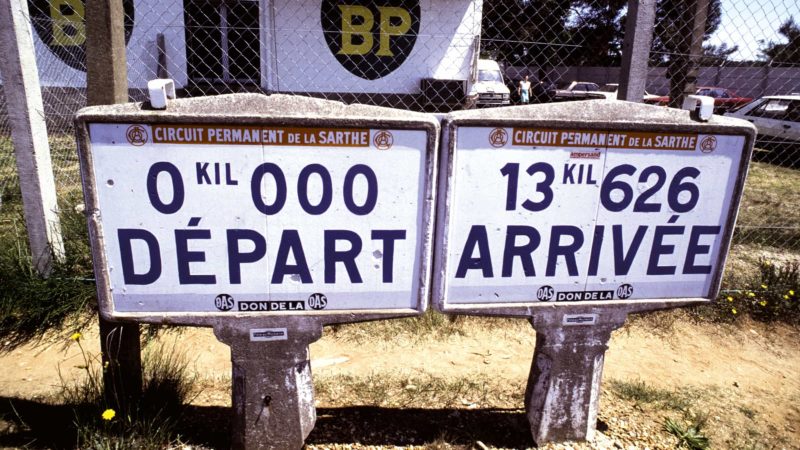
The famous Le Mans road signs depicting the start and finish of the 13.6km circuit
Getty Images
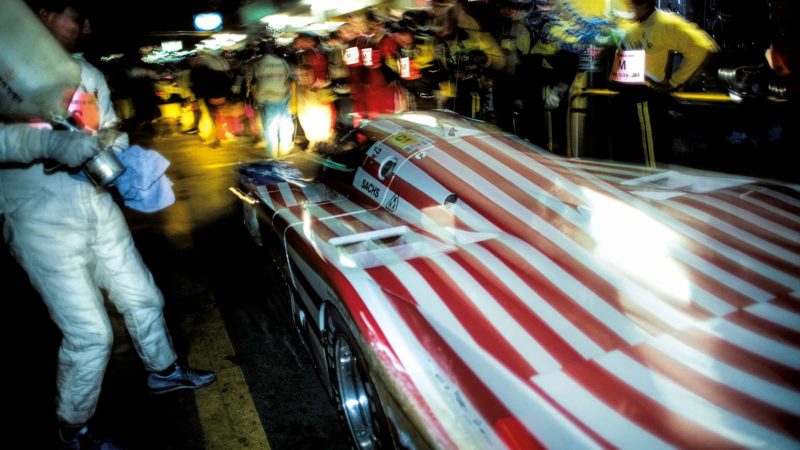
Joest Racing’s highly patriotic Porsche 956 of 1986, shared by George Follmer, John Morton, Kenper Miller. Wonder which country they’re from?
Getty Images
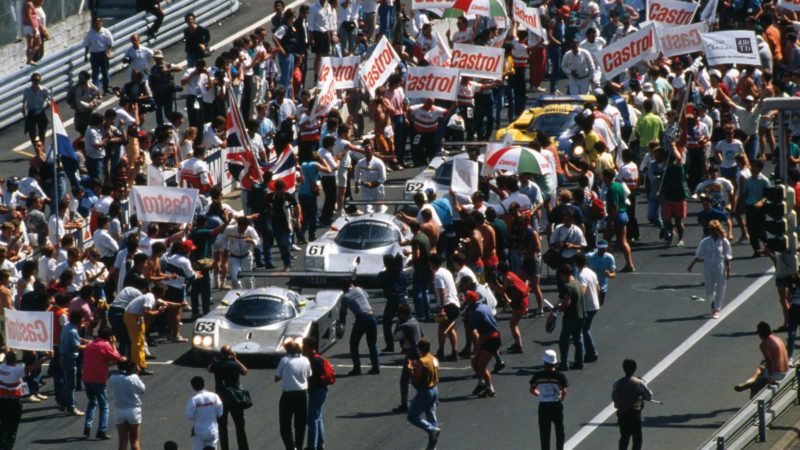
The scene of victory in 1989, when Team Sauber Mercedes’ twin C9s finished one-two to record the Silver Arrows’ first Le Mans victory since that of the 300 SL of 1952
Alamy
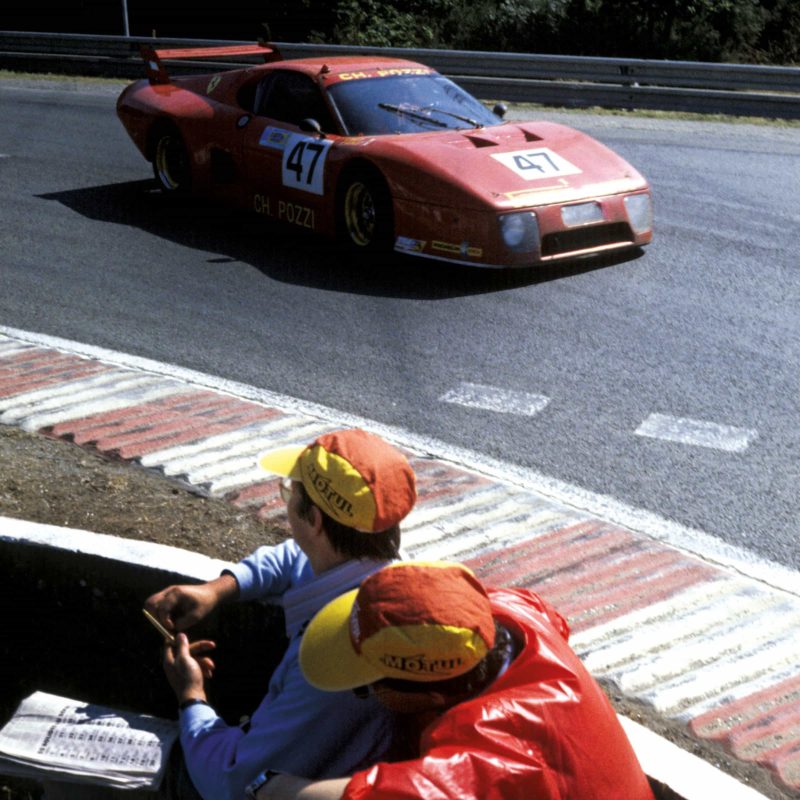
The Ferrari 512BB of French automotive dealer Charles Pozzi, driven by Claude Ballot-Léna and Jean-Claude Andruet. They would win the IMSA GTX class in a fine fifth overall in 1981
Getty Images